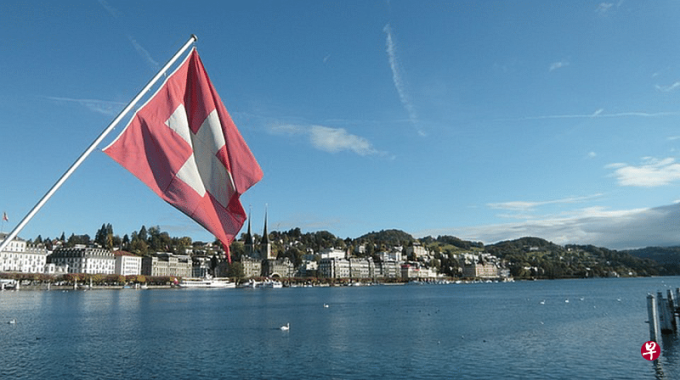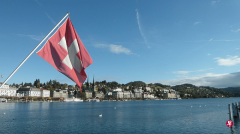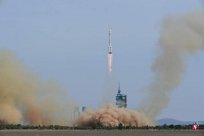
In an era when international ideological barriers are becoming more and more distinct, the complicated state of ethnic groups talks or thinks of internal cohesion has become a more authentic issue, not completely political needs or operations.However, the way of talking or thinking will determine that there are more and less consensus or less. It is a national society more cohesion, more recognition, or more different skepticism between ethnic groups, and even embark on the road of tragedy.In many countries, they tend to speak each other in ideology or different ideas, or individual communities and opinions leaders insist on the stance of small circles on major issues, and use nothing as a discussion to expand their rendering and influence on the masses, strive to expand supportIt is not meaningful to help the same goal of seeking the same goal as the goal.This is a common situation in reality and history.
Even if it is not such an era, it is not uncommon, and a country that lacks cohesion among citizens, national capital -including historical length, cultural thickness, ethnic identity, common values, etc. -It is easy to fall into a situation where internal disputes are recovered, and it is difficult to accumulate the overall achievements of the country.
Switzerland is a successful case worthy of borrowing mirrors in this regard.
In 1291, for the pressure of against the Habsburg family, the three Plateau states in central Switzerland signed an alliance to establish a permanent Union, vowed to jointly confront enemies based on ruling groups, and ensure local security according to law. At the same time, through negotiationInstead of fighting, solving each other's differences, and so on.Because the alliance adopts a high degree of respect for each other's rights and cooperation and unity, there is a great right to freedom between places, and some city -states have joined one after another to expand the Alliance Federation.The Habsburg Rule Group felt that it might out of control and sent troops to fight, but several battles were defeated by the sturdy and brave Swiss civilian military regiments. Switzerland gradually achieved an independent position. LaterDifferent Swiss ethnic groups have gradually formed a unified national consciousness.
However, until the new constitution was passed in 1848, Switzerland had been facing various internal and external contradictions before it officially became a modern country.This group of countries nicknamed "Germans who don't want to be a German, the Italians who do not want to be Italians, and the French who do not want to be the French" were once invaded by France, supporting the French regime, and facing Catholicism in the face of CatholicismThe conflict with the Protestant Education broke out in 1847.He was ordered to lead the federal military to the Catholic conservatives to resist the veteran Du Fur, who could not bear the disability of his compatriots and vowed to complete the task of the minimum casualties.In addition to actively persuading part of the resistance to the state, he also asked his subordinates to treat the enemy to wounded the soldiers. In the end, the civil war ended in a few weeks, and the two sides died less than 100.That was the last war that the Swiss participated in.Duer was one of the founders and first presidents of the International Red Cross Society later established.
Because they are between the big nations, they are mostly not stained with the big royal family. Swiss people with different backgrounds have always had a strong sense of crisis. They also understand that the strength of individual ethnic groups is too weak. Only unity can resist the intervention and slavery of the great powers.In order to defend your lifestyle.This has developed the national spirit of the Swiss brave and good fighting. For hundreds of years, the tactics and formation of the Swiss soldiers were deeply valued and were mercenaries hired by European powers.According to statistics, during the highest peak period, as many as 5%of Switzerland's population was put into the ranks of mercenaries, it earned a large number of foreign exchange for the country, and indirectly introduced funds for the development of traditional handicrafts such as textiles, jewelry, and clocks, and also laid the foundation for the later economic scale.
Because of this crisis awareness, Switzerland's amendment in the 19th century has reached all the people's soldiers and has become part of the country's identity.Today's tourists will see men carrying military backpacks and automatic rifles on the train station.Recently, a local person believes that Singapore's military service system has a lot of common and kindness with Switzerland.
Swiss historian Olivier Meuwly believes that Napoleon's equal system of various states opened by Switzerland actually helped Switzerland to become a modern neutral national model.At that time, European powers knew that it was good for all parties to keep the geographical location in Switzerland."The Swiss people did not require neutrality. Become a neutral country is not a planned matter, but it was promoted by other countries because of the needs of the current situation."
The Swiss later became more and more clear. This neutrality was a good way to avoid people to tear because of choice in the dispute over the great power.
For hundreds of years, the Swiss people have continuously accumulated their own logo (ICON) in the process of peace and disturbances.The state rights that are fully autonomous, the average direct democracy (referendum) of four times a year, and countless international business signs such as clock industry and chocolate are conducive to condensing the centripetal force of different Chinese groups and strengthening national awareness.
This process may not be conscious in the early days, but in the subconscious, they gradually do not take the consideration of the country's language and culture as the consideration of the country's identity.EssenceWhether it is the development and protection of the mountains and mountains, or the consensus of the argument and seeking consensus of the difficult agenda, it seems to be laying a clearer track for the next generation.
People who travel in the time sequence cannot give the answer to future historical questions, and even often answer wrong questions. Only afterwards, from the perspective of historians, a country or ethnic group will be discovered.Or do something wrong, and many things have been unable to look back, and even pay an irreplaceable price; unfortunately, even so, many times, these costs are neglected or forgotten after two or three generations, and even faced with distortions and misunderstandings.Essence
The foundation of national cohesion and consensus needs to be educated inheritance, and it is also necessary to update the times. The premise is that these foundations must be the crystallization of thinking under the expression of the people's freedom of freedom, rather than shaped it under pressure.The ruler's self -imagination.Switzerland has advocated freedom from politics to the economy, and has created economic miracles since the mid -19th century.Their citizens can keep the legal bottom line of national interests and respect the rules of democracy, and they are also miracles of democratic systems.This probably depends on potential identity and sense of belonging, and no normal person wants to demolish their house; the hope and opportunities for success brought by sustainable development is also an element of identity.These are issues that national governors must accurately grasp the significance of their own politics.



